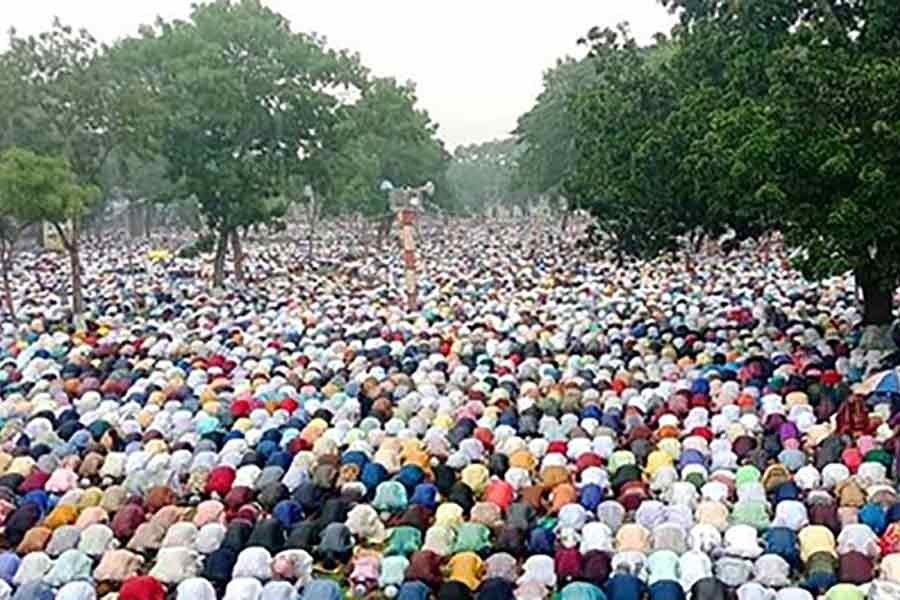After a two year hiatus due to the coronavirus pandemic, Kishoreganj’s Sholakia has, once again, hosted the largest Eid-ul-Fitr congregation in Bangladesh, with hundreds of thousands of participants offering prayers.
It was the 195th Eid-ul-Fitr congregation at the Sholakia ground. The gathering first began in 1828.
According to Deputy Commissioner Mohammad Shamim Alam, also the chairman of the congregation’s organising committee, an estimated 350,000 worshippers had offered prayers at the ground. The event began at 10 am with the traditional three-gun salute.
The 2.83-hectare ground has the capacity to host up to 250,000 worshippers in 265 rows.
The weather caused some inconvenience for worshippers as rain began pouring down 10 minutes into the start of the prayer service. For security reasons, the gathered devotees, who came from all over the district and the rest of the country to offer prayers together, had only been allowed to bring their prayer mats.
However, a large number of volunteers and two special medical teams were set in place by the organisers to help the people offering prayers.
The authorities also arranged drinking water and places to eat and stay for the worshippers who came from far away. Two special trains, one from Mymensingh and the other from Bhairab Upazila, were running for the people who had come to offer prayers.
Kishoreganj Superintendent of Police Md Mashruqur Rahman Khaled said four-layer security measures were in place due to the 2016 militant attack.
Police, Border Guard Bangladesh, Rapid Action Battalion, Ansar personnel as well as law enforcers in plainclothes were deployed to the ground. CCTV cameras and watchtowers had also been installed.
Having established his fiefdom, Dewan Hazrat Khan Bahadur, the sixth descendant of Isha Khan, built Sholakia Eidgah in 1828 on a bank of the Narasunda River.
According to local researchers, around 125,000 Muslims took part in the first congregation.
The Eidgah was later named Shoa Lakhi Math (shoa meaning one and a quarter and lakh meaning a hundred thousand), the pronunciation gradually degenerated into 'Sholakia'.


